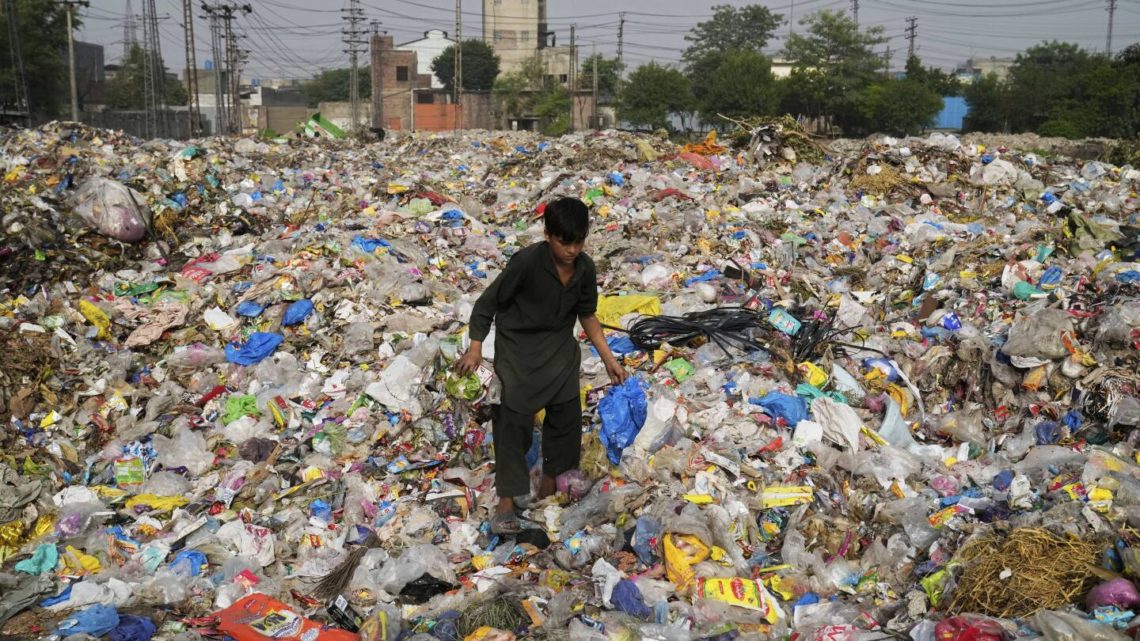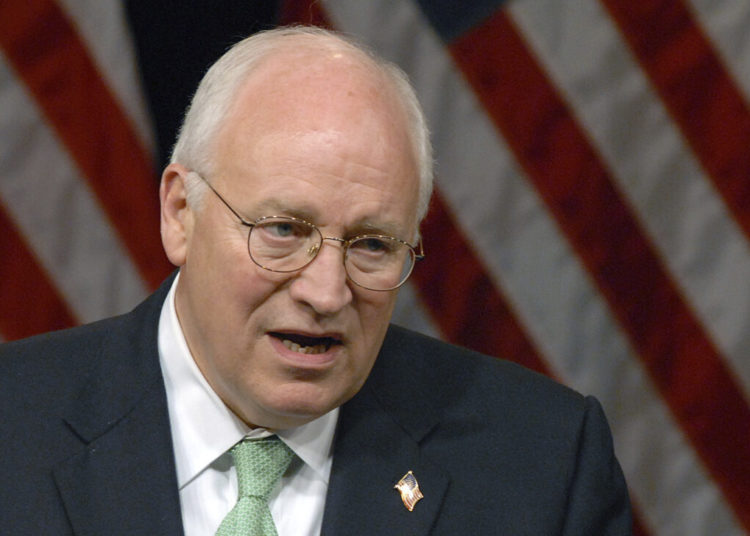GENEVA (AP) — Negotiations to reach a major treaty to end growing plastic pollution around the world fell apart on Friday, with delegates in Switzerland adjourning with no immediate plans to resume.
The consequence of the failed talks is devastating, as it leaves no clear path for nations to collectively address the mountains of plastic that are filling landfills, clogging oceans and showing up in chunks on beaches and other public places.
“Consensus is dead,” Bjorn Beeler, international coordinator for the International Pollutants Elimination Network, upon adjournment.
Every year, the world makes more than 400 million tons of new plastic, and by about 70% by 2040 without policy changes. About 100 countries want to limit production. Many have said it’s also essential to address toxic chemicals used to make plastics.
The final decision, or lack there of, underscored the influence of the United States and other oil-producing countries such as Saudi Arabia, which opposed any limit on the productions of plastics, made mostly from fuels like oil and gas.
Nations had worked for . But they were deadlocked over whether the treaty should reduce exponential growth of plastic production and put global, legally binding controls on toxic chemicals used to make plastics.
Environmentalists, waste pickers and Indigenous leaders and many business executives traveled to the talks to make their voices heard. Indigenous leaders sought a treaty that recognizes their rights and knowledge.
The Youth Plastic Action Network was the only organization that spoke at the closing meeting Friday. Comments from observers were cut off at the request of the U.S. and Kuwait after 24 hours of meetings and negotiating.
After the adjournment, some delegates tried to put a good face on the negotiations and expressed hope for future talks. Delegates did agree they would meet again at some point in the future.
Inger Andersen, executive director of the United Nations Environment Programme, said despite challenges, despite the disappointment, “we have to accept that significant progress was made.”
This process won’t stop, she said, but it’s too soon to say how long it will take to get a treaty now.
A repeat of last year’s failure
The negotiations were supposed to be the last round and produce the first legally binding treaty on plastic pollution, including in the oceans. But just like at the meeting , the talks ended with no agreement.
Luis Vayas Valdivieso, the chair of the negotiating committee, wrote and presented two drafts of treaty text in Geneva based on the views expressed by the nations. The representatives from 184 countries did not agree to use either one as the basis for their negotiations.
Valdivieso said Friday morning as the delegates reconvened in the assembly hall that no further action was being proposed at this stage on the latest draft.
After a three-hour meeting, he banged a gavel made of recycled plastic bottle tops from a Nairobi landfill, one of many symbols of the plastic problem that were visible during the talks.
A ‘deeply disappointing’ outcome
European Commissioner Jessika Roswall said the European Union and its member states had higher expectations for this meeting and while the draft falls short on their demands, it’s a good basis for another negotiating session.
“The Earth is not ours only. We are stewards for those who come after us. Let us fulfill that duty,” she said.
Representatives of Norway, Australia, Tuvalu and others nations said they were “deeply disappointed” to be leaving Geneva without a treaty. Madagascar’s representative said the world is “expecting action, not reports from us.”
China’s delegation said the fight against plastic pollution is a long marathon and that this temporary setback is a new starting point to forge consensus.
For their part, representatives from plastics industry, heavily criticized in recent years, called for nations to compromise more to get a deal. The Global Partners for Plastics Circularity said governments must move past entrenched positions.
For any proposal to make it into the treaty, every nation must agree. India, Saudi Arabia, Iran, Kuwait, Vietnam and others have said that consensus is vital to an effective treaty. Some countries want to change the process so decisions may be made by a vote if necessary.
Graham Forbes, head of the Greenpeace delegation in Geneva, urged delegates in that direction.
“We are going in circles. We cannot continue to do the same thing and expect a different result,” he said as Friday’s meeting ended.
Red lines that were not surmountable
The biggest issue of the talks has been whether the treaty should impose caps on producing new plastic or focus instead on things like better design, recycling and reuse.
Saudi Arabia, Kuwait and or banning chemical additives in the treaty. The U.S. supported provisions to improve waste collection and management, improve product design and drive recycling, reuse and other efforts to cut the plastic dumped into the environment.
Saudi Arabia said both drafts lacked balance, and Saudi and Kuwaiti negotiators said the latest proposal gave more weight to the views of other nations.
That draft, released early Friday, did not include a limit on plastic production, but recognized that current levels of production and consumption are “unsustainable” and global action is needed. New language had been added to say these levels exceeded current waste management capacities and are projected to increase further, “thereby necessitating a coordinated global response to halt and reverse such trends.”
The objective of the treaty was revamped to state that the accord would be based on a comprehensive approach that addresses the full lifecycle of plastics. It talked about reducing plastic products containing “a chemical or chemicals of concern to human health or the environment,” as well as reducing of single-use or short-lived plastic products.
It was a much better, more ambitious text, though not perfect. Each country came to Geneva with a lot of “red lines,” said Magnus Heunicke, the Danish environment minister. Denmark holds the rotating presidency of the Council of Europe.
“To be very clear, a compromise means that we have to bend our red lines,” he said.
___
The Associated Press’ climate and environmental coverage receives financial support from multiple private foundations. AP is solely responsible for all content. Find AP’s for working with philanthropies, a list of supporters and funded coverage areas at .
The post No end in sight to plastic pollution crisis as treaty negotiations in Geneva fail appeared first on Associated Press.




